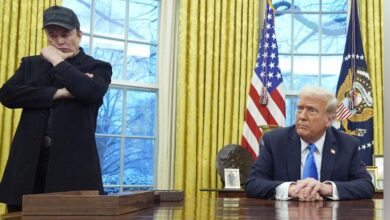UAE Strives for Climate Agreement Amid Tensions Over Fossil Fuels

The United Arab Emirates (UAE) is currently at the forefront of international climate negotiations at the COP28 summit, facing significant challenges. The summit, taking place in Dubai, has entered a critical phase as government ministers from nearly 200 countries strive to resolve a contentious debate over the role of fossil fuels in climate change mitigation.
The negotiations have been marred by disagreements, particularly over the inclusion of fossil fuels in the final agreement. Climate-vulnerable countries, led by the Marshall Islands, are advocating for a clear phase-out of fossil fuels to achieve the global goal of limiting climate warming to 1.5 degrees Celsius above pre-industrial temperatures. However, the latest draft of the negotiating text reveals a range of considerations, from a complete phase-out of fossil fuels in line with scientific recommendations to more lenient approaches or no mention at all.
COP28 Director General Majid Al Suwaidi, representing the UAE, has expressed a commitment to an ambitious outcome, yet concerns remain over the influence of fossil fuel-emitting nations. Notably, the appointment of Sultan Al Jaber, CEO of state oil firm ADNOC, as COP28 president has drawn criticism and raised concerns about potential conflicts of interest.
Activists and environmental campaigners at the summit have voiced strong opposition to any form of greenwashing and have called for decisive action, emphasizing the urgency of the climate crisis. These sentiments reflect a global call for a more assertive stance against the continued reliance on fossil fuels.
In the backdrop of these intense negotiations, Azerbaijan has gained support to host the next COP29 climate change summit, potentially resolving a geopolitical deadlock over the venue for future discussions.
The situation at COP28 underscores the complex interplay between economic interests, environmental imperatives, and geopolitical dynamics. As the summit draws to a close, the international community watches closely to see if and how a consensus can be reached, especially in light of the pressing need for global action on climate change.





